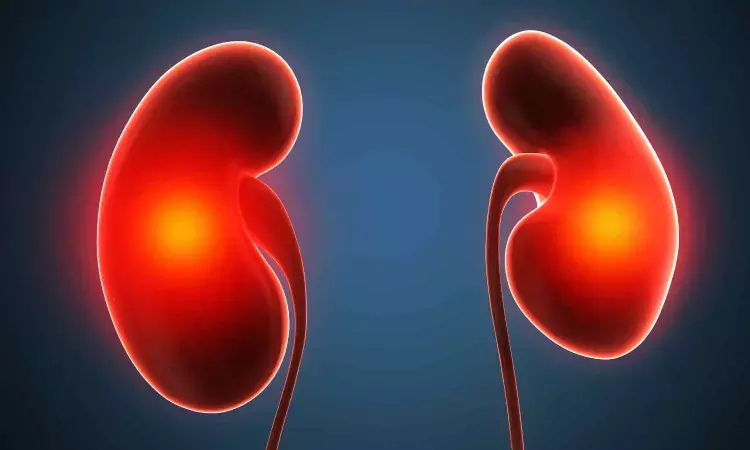- Home
- Medical news & Guidelines
- Anesthesiology
- Cardiology and CTVS
- Critical Care
- Dentistry
- Dermatology
- Diabetes and Endocrinology
- ENT
- Gastroenterology
- Medicine
- Nephrology
- Neurology
- Obstretics-Gynaecology
- Oncology
- Ophthalmology
- Orthopaedics
- Pediatrics-Neonatology
- Psychiatry
- Pulmonology
- Radiology
- Surgery
- Urology
- Laboratory Medicine
- Diet
- Nursing
- Paramedical
- Physiotherapy
- Health news
- Fact Check
- Bone Health Fact Check
- Brain Health Fact Check
- Cancer Related Fact Check
- Child Care Fact Check
- Dental and oral health fact check
- Diabetes and metabolic health fact check
- Diet and Nutrition Fact Check
- Eye and ENT Care Fact Check
- Fitness fact check
- Gut health fact check
- Heart health fact check
- Kidney health fact check
- Medical education fact check
- Men's health fact check
- Respiratory fact check
- Skin and hair care fact check
- Vaccine and Immunization fact check
- Women's health fact check
- AYUSH
- State News
- Andaman and Nicobar Islands
- Andhra Pradesh
- Arunachal Pradesh
- Assam
- Bihar
- Chandigarh
- Chattisgarh
- Dadra and Nagar Haveli
- Daman and Diu
- Delhi
- Goa
- Gujarat
- Haryana
- Himachal Pradesh
- Jammu & Kashmir
- Jharkhand
- Karnataka
- Kerala
- Ladakh
- Lakshadweep
- Madhya Pradesh
- Maharashtra
- Manipur
- Meghalaya
- Mizoram
- Nagaland
- Odisha
- Puducherry
- Punjab
- Rajasthan
- Sikkim
- Tamil Nadu
- Telangana
- Tripura
- Uttar Pradesh
- Uttrakhand
- West Bengal
- Medical Education
- Industry
Metabolic Syndrome components significantly associated with prognosis of IgA nephropathy, finds study

Metabolic Syndrome components significantly associated with prognosis of IgA nephropathy, finds study published in the Scientific Reports.
Metabolic syndrome, a cluster of conditions including obesity, hyperglycemia, hypertension, and dyslipidemia, is increasingly recognized for its association with kidney disease. However, the impact of metabolic syndrome on the long-term prognosis of IgA nephropathy(IgAN) remains understudied.
From August 2009 to December 2018, we conducted a retrospective cohort study at the Department of Nephrology, General Hospital of Ningxia Medical University, involving 698 patients with primary IgAN identified by the initial renal biopsy.
Patients were divided into five groups based on the number of metabolic syndrome components they exhibited, including metabolic syndrome with hyperuricemia: Group A (no components), Group B (one component), Group C (two components), Group D (three components), and Group E (four or more components). We compared and analyzed the effect of metabolic components on the prognosis of IgAN. The mean age was 35.83 years, and 51.86% male.
The prevalence of metabolic syndrome was 25.07%. The 24-h urine protein quantification correlated positively with metabolic components (P < 0.05), while eGFR correlated negatively (P < 0.05). Kaplan-–Meier analysis showed decreased renal survival with more metabolic components, especially with four or more (P < 0.001). Blood pressure was the most important factor influencing the occurrence of endpoint events in IgAN patients, according to a random forest technique analysis. The incidence of metabolic abnormalities in patients with IgA nephropathy is closely related to the severity of clinical manifestations and poor renal prognosis, with blood pressure being the most critical factor.
Reference:
Ma, H., Lei, C., Zhao, B. et al. The impact of metabolic component count on IgA nephropathy prognosis. Sci Rep 14, 30996 (2024). https://doi.org/10.1038/s41598-024-81929-3
Dr Kartikeya Kohli is an Internal Medicine Consultant at Sitaram Bhartia Hospital in Delhi with super speciality training in Nephrology. He has worked with various eminent hospitals like Indraprastha Apollo Hospital, Sir Gangaram Hospital. He holds an MBBS from Kasturba Medical College Manipal, DNB Internal Medicine, Post Graduate Diploma in Clinical Research and Business Development, Fellow DNB Nephrology, MRCP and ECFMG Certification. He has been closely associated with India Medical Association South Delhi Branch and Delhi Medical Association and has been organising continuing medical education programs on their behalf from time to time. Further he has been contributing medical articles for their newsletters as well. He is also associated with electronic media and TV for conduction and presentation of health programs. He has been associated with Medical Dialogues for last 3 years and contributing articles on regular basis.


